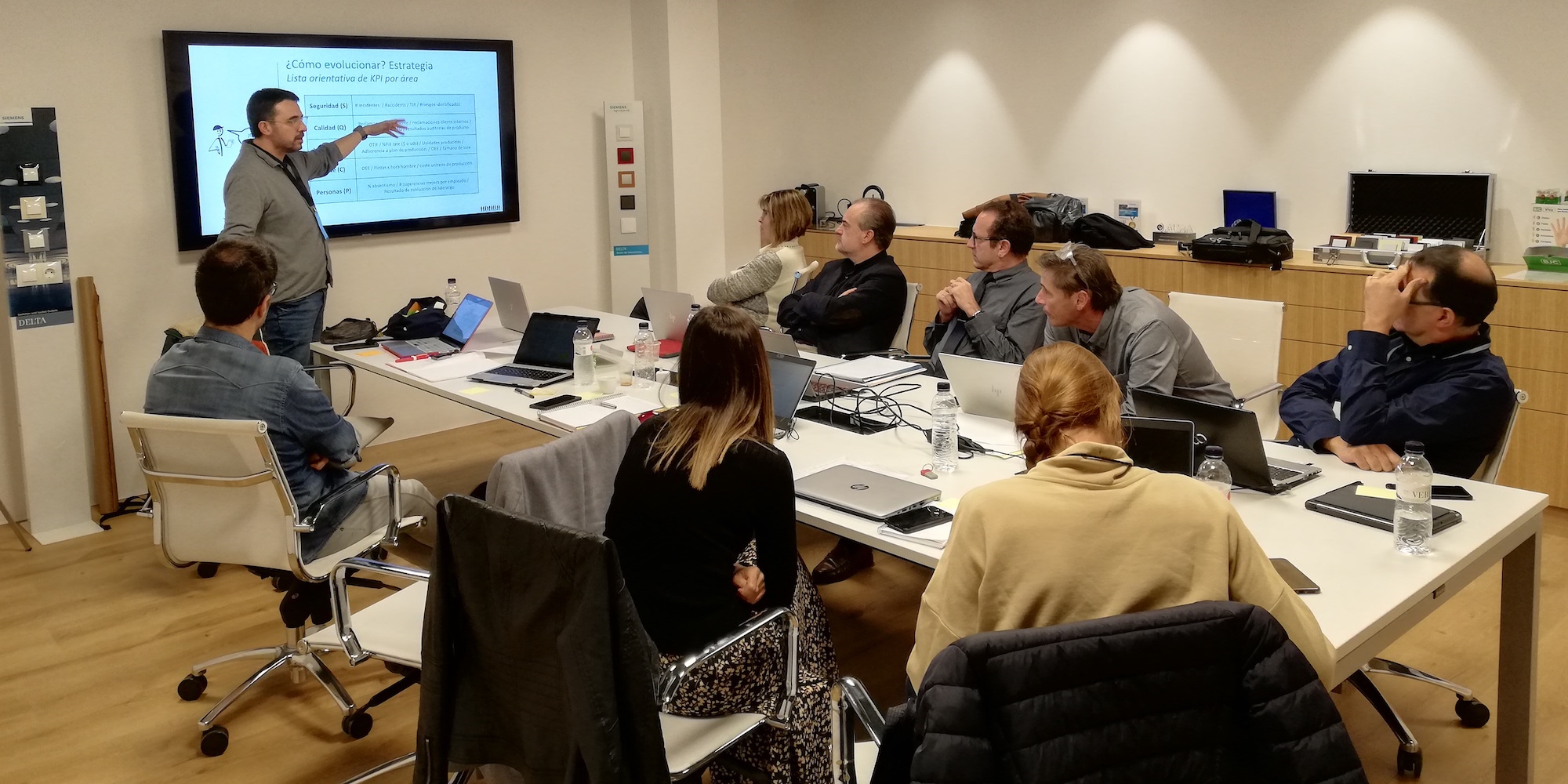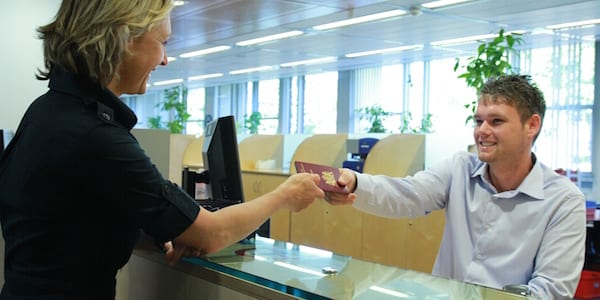
A people-centric lean HR strategy
CASE STUDY – This automotive parts supplier based in southwest Spain is discovering the power of lean thinking applied to recruitment and Human Resources.
Words: Eugenio Serrano Ylleras, CEO; José Manuel Tirado Fernández, HR Director; and Sheila González, HR Manager - Deutz Spain
Many lean people think that “respect for people” – one of the two pillars of the Toyota Production System – is about greeting employees in the corridors or not yell at them. That is important, of course, but there is more to it: respect for people means to give everyone the opportunity to excel at their job.
We have learned this the hard way. Deutz Spain has been on a lean journey since 2012, and we are quite strong on the technical side of lean and on the application of its principles and techniques in production. Until recently, however, we felt we weren’t doing enough to engage and develop our people – which invariably resulted in the difficulty to sustain results and ensuring that lean is embraced consistently across the business.
That’s why, in 2017, we decided to change the way we manage our HR Department, focusing its efforts on the employee. It sounds obvious, but it isn’t: what we experienced in the past two years was a radical change in our department and in our way of thinking. We essentially reached a point where we knew we only had two ways of doing it: either we kept assuming we knew what our employees wanted and acted accordingly, or we admitted to ourselves that we didn’t know everything and that we had to try something different. We picked the latter.
We started by reaching out to our people with surveys that aimed to understand what we did well, what we didn’t do so well, and what we could do that we were not doing. The surveys were organized as part of voluntary sessions with 20 people maximum, and it was great to see that 84% of our employees took part in them (a total of 303 people). This goes to show people were hungry for change!
Once we gathered the results, we segmented them in five areas – each corresponding to a different level in our management system. Our goal was to create a HR system that would enable us to improve the engagement of our people, so that we could provide more value to customers and, in turn, make our stakeholders happy. We believe that improving engagement is the first step, after which everything else comes naturally. In our vision, the sustainability of our growth (and therefore the future of our business) is directly related to the engagement of our employees. That’s what we based our new five-year HR strategic plan on.
A PLAN FOR EVERY PERSON?
The lean HR strategy includes some of the most common communications tools a business has its disposal – from an internal magazine to an App that we used for announcements (we built it in response to the fact that information typically reached the shop floor completely distorted), which has been an incredible success with an 85% opening rate for new messages in the first hour.
Our efforts to engage with people are not limited to one-to-many. We also invest a lot of time in one-to-one conversations. In this sense, the most important initiative we introduced (and perhaps the most impactful) is the 30-minute meeting the HR department organized for each person working here – typically on the day of their birthday. This informal get-together is an opportunity to discuss the performance of the company and touch base with the individual to address any questions they might have about their career plans. More importantly, it’s an opportunity for people to open up about the problems they experience – on the job and at home (it would be hypocritical of us to say that our HR strategy is based on the employees and then not even know what they look like). At the end of the meeting, the employee is given a thank-you card they can use to buy sweets at a local bakery here in Zafra. Our surveys tell us that people really love the meeting: they tell us it makes them feel listened to.
Speaking of listening to people, we have also improved our suggestions system. In the past, this lacked a standard, which meant that people made a suggestion and rarely heard back. They didn’t know whether or not their suggestion had a chance of being implemented.
Offering equal opportunities is very important for us. To this end, we have introduced an objective system to rate each candidate for a given position, whether they intend to join Deutz Spain or simply get a promotion. Our criteria are very much oriented towards people development: so, a candidate’s skills set weighs in for a 70% and their experience for 30%. Different skills levels give you access to different positions, and each position has a specific salary linked to it.
Internal people can access a ranking any time they want, which tells them what they can do to improve their situation and increase their chances of success. Knowing exactly where you stand helps you to make the right decisions you need to make in order to progress; it’s an incentive to develop your capabilities. We do whatever we can to allow a person to join a course, whether it means assigning them a different shift or giving them a paid leave (nobody should be punished financially for wanting to learn new skills).

We offer as wide a range of training programs as possible, from English language classes with native speakers to lean training. For this, in particular, we partner with Instituto Lean Management to offer our people the Lean Practitioner Program. We have also offered “Dual Professional training” since 2012, as well as a High Potential Program with the University of Extremadura. Under this program, the four best performing students from the School of Engineering and the two best performing students from the Dual Professional training have the opportunity to participate in a year-long rotation in the Quality, Engineering and Production departments. The goal of the program is to identify potential managers (60-65% of participants end up staying with us).
We are currently in the middle of a very exciting project: we are building a not-for-profit Business School on our premises, which will boost our ability to give people the skills they need. The school will mainly provide professional training (like post-graduate courses in Industry 4.0), including two masters on lean management and lean six sigma. The site will also host workshops and conferences.
At Deutz Spain, we want to create an ecosystem in which we can recruit and retain talent and better manage the way people move across the company. To us, all this has to happen within a meritocratic system, in which everyone has access to the same opportunities. So, we evaluate people’s capabilities and performance and help them see where their gaps are. Based on that, we assign them to a different course (we have 27 for capabilities development and 27 for performance improvement). The best part of this system is that it allows people to see what skills they need to develop – every job has a set of skills the person holding it has to have – and makes it impossible for anyone to cut corners, ensuring everyone gets a fair shot.
Finally, we couldn’t strive for respect for people if we didn’t address salary inequities. Based on our internal data and statistics we gathered from the market, we identified a range: so long as salaries are within that range, we are being fair to our people. It is our job to raise the salaries of those who, for one reason or another, find themselves below that range. Those whose salaries feature higher on the graph than the range are typically given more responsibility.
A company that treats people equally and respectfully will be able to engage everyone, and better engagement is a win-win for everybody involved. We truly invest in our people here at Deutz. Our biggest failure would be to have someone work for us for years and not see that person grow in that period of time: to us, untapped potential is waste. Pure and simple. That’s why, in the HR department, we want to make sure that everyone has the opportunity to develop all the capabilities they need to have to do their job well.
THE AUTHORS



Read more


FEATURE – This Siemens Group-owned medium-sized manufacturer of electrical low-voltage devices has been experimenting with hoshin kanri. In this article, they share their experience and lessons learned.


INTERVIEW - The historical city of Amersfoort in the Netherlands has introduced lean thinking and practice in local government to provide better and faster services to its citizens.


FEATURE – Tools and framework help us to bring lean principles to life and act on our strategies. The author introduces the Lean Marketing Canvas.


RESEARCH - Offering us a glimpse into how the human mind works and into Toyota's approach to people engagement, this article tells us how to create a better working environment for our employees.

